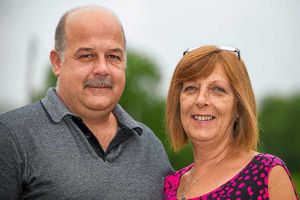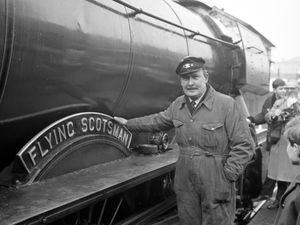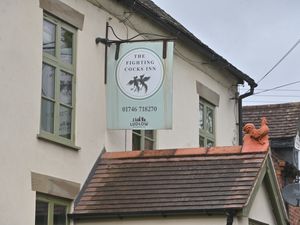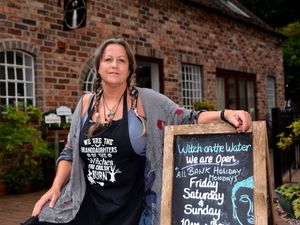Special report: Getting high speed internet to rural areas - not as easy as you might think
Townies may think nothing of logging onto wifi at a cafe, or grocery shopping online but, for residents in the tiny Shropshire village of Clungunford, until about a year ago they had resigned themselves to living without such things.
Yet last spring they got access to superfast broadband - and it has transformed their lives.
Exactly how high speed internet gets out to such remote places has always been a work of technical magic many never understand.
Workers at Ludlow's telephone exchange at Lower Galdeford, working with the Connecting Shropshire partnership striving to upgrade the county, explained the complexities.
More than 43,000 premises and 205 cabinets have been connected.
300km of fibre has been laid, involving hundreds of metres of new underground duct and hundreds of new node boxes.
Every fibre is monitored from a centre in Bristol with an alarm sounding within seconds if there is a breakage.
Programme manager Chris Taylor said: "It's really not the case that you simply contact someone and they flick a switch.
"The perception that it doesn't take a lot to do the work is an understatement to say the least."
He is surrounded by racks of machinery with blinking lights containing draws upon draws of delicate-looking colour-coded fibre coils.
Dan Czyzyk, BT Openreach's senior project manager, said the Ludlow building was known as a "head-end" - where household signals get linked with Internet Service Providers - covering thousands of premises in south Shropshire and north Herefordshire.
But it wasn't the only one, he said, with about 20 others around the county, including one in Bridgnorth for the south east and an entirely new head end built in Chirbury, for the Welsh border area.
He said: "Each of those fibres carries the signal for a whole cabinet. That's five or six hundred homes-worth of data all coming down something barely as big as a stand of hair."
Four batches of fibre lines issued from the Ludlow head end, and we set out to following a 240-fibre one in the direction of Clungunford.
The first stop was at a "node" about five kilometres away on the A49 at Bromfield. Hidden underground was a capsule containing more coils, which Mr Czyzyk said was akin to a "work of art", taking two to three days to connect each strand inside.
Getting to that point was weeks of work, he said, with the fibre pushed through existing underground ducts where possible, but often needing blockages cleared and sections of new duct built with all the accompanying land-owner's permissions and road closures that entailed.
He said could understand questioning why Ludlow and Craven Arms were connected first, when they already had reasonable broadband, but the nature of the engineering meant they had to work outwards from the head end, step by step.
From Bromfield we followed fibres which split off to a node in Craven Arms, which split off again to a node in Aston-on-Clun and again to Clungunford, now whittled down to just 24, one of which stopped at the green cabinet where residents would then have to be patched in using the existing copper phone lines.
At Rocke Cottage Tea Rooms - which now offers customers wifi - residents Steve and Dianne Lewis, who live next to the cabinet on Upper Gunnas Close, said it had changed their lives.
Diane, 56, is Steve's full-time carer after he suffered a head injury playing football, and she said they struggled to get out with everything so far away.
Now, she said they could do their weekly food shopping on line and get it delivered without having to drive miles to the nearest supermarket, and she could even keep in regular touch with her brother in China without sky-high telephone charges.

Steve, 46, said before they only got about 1.5mbps compared to up to 76mbps they got now.
He said with the terrible phone signal another rural problem, they even connected their mobile phones through the internet.
Jonathan Roberts, chair of Clungunford Parish Council who runs Morgoed Estates land rent firm in the village, agreed it was a "godsend".
He said uploading 200 page documents the the Land Registry used to take forever, but now could be done in an instant and saved his business huge amounts in postage and fees.
"It certainly has been transformatory," he said, "we are able to take on more business comfortably rather than straining at the edges.
"Amongst the village take up has been high.
"Word soon spreads that there is an easier way to live than we have been used to," he added.





